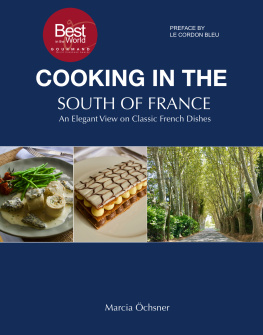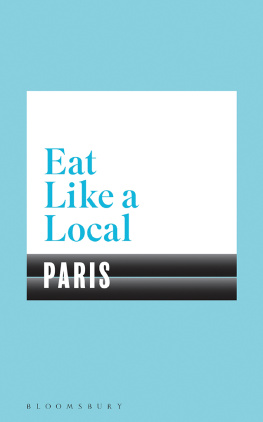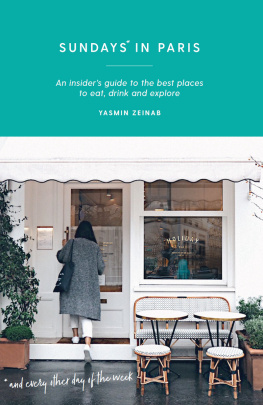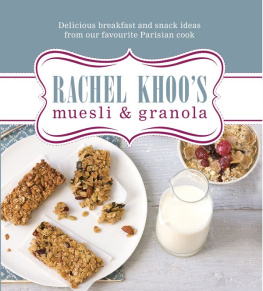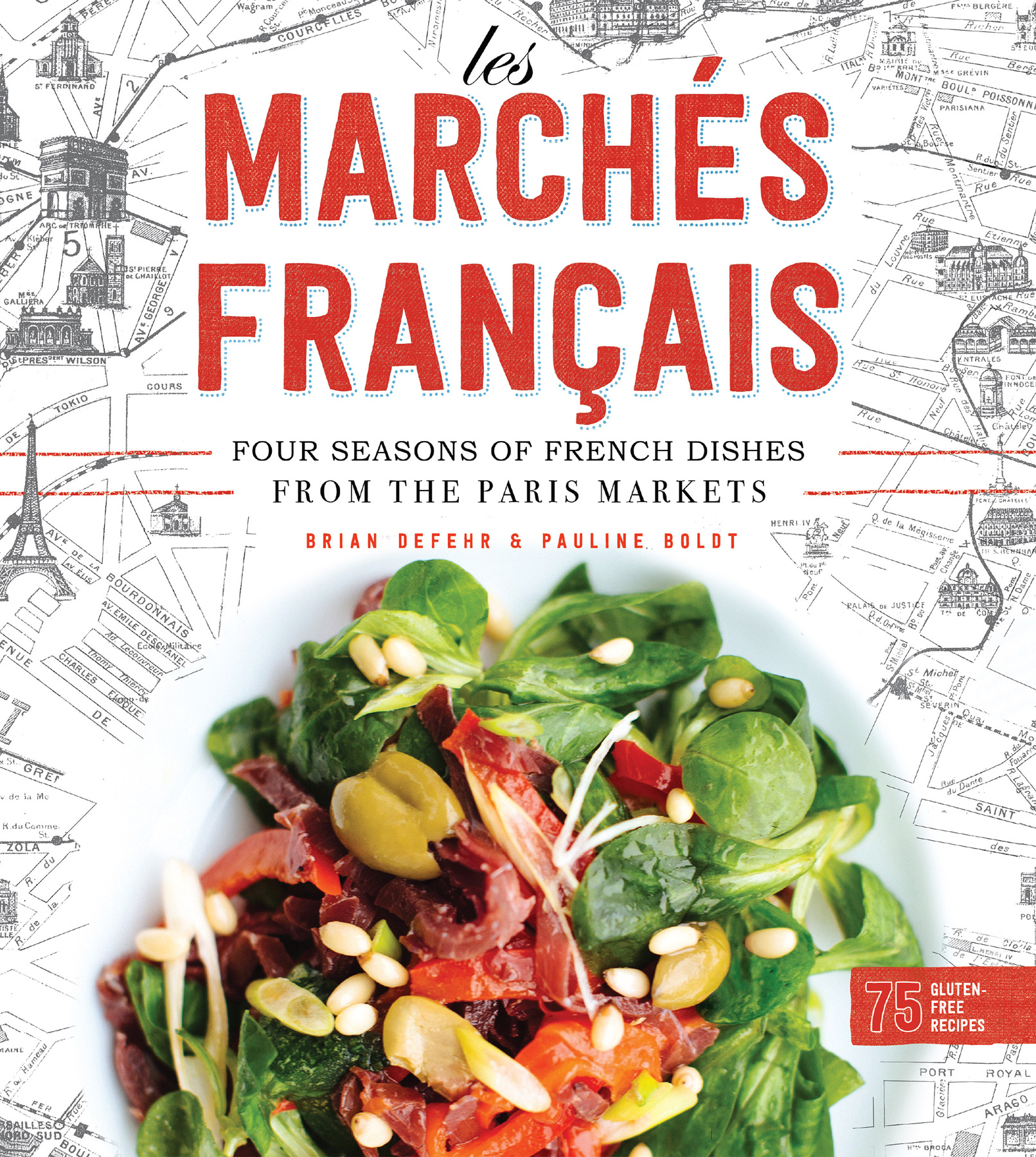Copyright 2016 by Brian DeFehr and Pauline Boldt
Photographs 2016 by Pauline Boldt, except where noted
, Photographs by Bonnah Rachul (left) and Teen Gowler (right)
Published by Running Press,
An Imprint of Perseus Books, LLC,
A Subsidiary of Hachette Book Group, Inc.
All rights reserved under the Pan-American and International Copyright Conventions
This book may not be reproduced in whole or in part, in any form or by any means, electronic or mechanical, including photocopying, recording, or by any information storage and retrieval system now known or hereafter invented, without written permission from the publisher.
Books published by Running Press are available at special discounts for bulk purchases in the United States by corporations, institutions, and other organizations. For more information, please contact the Special Markets Department at Perseus Books, 2300 Chestnut Street, Suite 200, Philadelphia, PA 19103, or call (800) 810-4145, ext. 5000, or e-mail special.markets@perseusbooks.com.
ISBN 978-0-7624-5915-5
Library of Congress Control Number: 2016934183
E-book ISBN 978-0-7624-6111-0
Digit on the right indicates the number of this printing
Designed by Joshua McDonnell
Edited by Kristen Green Wiewora
Typography: Brandon, Caslon, and Festivo
Handwritten type by 26 Projects
Running Press Book Publishers
2300 Chestnut Street
Philadelphia, PA 19103-4371
Visit us on the web!
www.runningpress.com
E3-20170328-JV-PC
To Olenka, for not letting your steadfast love and adoration muzzle any candid cooking critiques, for signing your name on the bottom line, and for being such a beautiful anchor to everything.
Brian
To David, for your unwavering belief in me, and to Tula, for your boundless joy and winning smile. You both make me strive to be better.
Pauline

I grew up in one of those small towns on the Canadian prairies where all the streets run in a straight line, either eastwest or northsouth. Everyone lived in a house with a driveway and garage and every house had a front yard and a backyard.
As almost all of these backyards had a vegetable garden, I took for granted ours, which my mother kept up immaculately. Some gardeners tend faithfully to their garden to connect with nature and bring Zen moments into their hectic lives. My feeling was that my mothers garden existed for the purely pragmatic purpose of helping feed a family of four children as economically as possible. As it wasnt uncommon to have snow in May and October, you can imagine the growing season wasnt generous, but this type of prairie folk was used to coaxing out all the land had to offer.
Since most of my childhood was spent in organized school sports, unorganized neighborhood sports, and harmless mischief, I have only vague memories of what grew in that garden and ended up later on our dinner plates. There were definitely the two large rhubarb plants on one edge; I remember because we were warned never to eat the leaves at risk of poisoning ourselves to death. And near the other edge was the dill weed that I think I got in trouble for digging up in a rare weeding job Id been entrusted with, as I hadnt realized these plants were essential for our basement pantrys stock of pickles. Whyd they call them dill weed if they werent in the same category as the dandelions I got five cents each to root out of our lawn?
Apparently we also had peas and beans, potatoes and tomatoes, and something orangewas it pumpkin? I dont recall anything with squash ever landing on my dinner plate, but I do recall that pumpkin pie was my favorite pie, and I should hope my mother wasnt using canned pumpkin pie mix. And there was an herb called summer savory. The particular flavor of this herb did manage to etch itself on my memory for life, though I can only remember one dish of my mothers that used it. It was some kind of unpretentious and chunky soup with potatoes, green beans, and the local sausage. I loved this soup, but for some reason my mother would only cook it about once a year. It was very simple and rustic, but with an inviting mix of colors and textures. What really made it intriguing and memorable was the addition of the fresh summer savory.
My mother herself grew up on a Canadian prairie farm with a multitude of siblings of hardworking, no-nonsense German origins and traditional Christian values. One of the main goals at mealtime was to get everyone well fed, and that was my impression of the essence of our familys meals, too: all business, without any attempts at gastronomy. Besides this one soup with summer savory, I dont recall any herb or spice outside of finely ground black pepper present in any of our food. Not to say it wasnt good, but it was simple. Functional.
In spite of the culinary uneventfulness my childhood, I did become passionate about food and cooking as a university student in the big city. It was like being given the keys to another dimension of human existence when I first discovered toasted cumin and coriander seeds; ginger, chiles, and fresh coriander; garlic, basil, and extra-virgin olive oil. Just like the ever-expanding universe, as soon as Id think I had seen the frontier, there would be a new galaxy of flavors waiting to be discovered.
Ive been a private chef in the urban sprawl of Paris since 2001 and still have only three balconies instead of a garden, yet I have easy access to almost all the flavors I could imagine, an infinite variety of the earths bounty in comparison with the family garden plot of my childhood. The greatest pleasure I get in cooking is in spontaneity and tapping into this bounty: heading out to the local food markets with nothing at all in mind for dinner, and loading up my shopping trolley with whatever looks the most ripe, curious, colorful, and tasty. Certain inspirations begin to take hold, but I resist imagining any completed dish until I return home and lay everything out on the counter and decide on the best natural affinities. Thats the way most of these dishes came together with Pauline, as I cooked and she shot the dishes for this book. Sometimes she wanted to know what was on the menu for the following day; other times she was happy to be surprised when the cooking began. Sometimes we ambled about the food markets together in search of the divine and other times she was off to a caf on the other side of Paris, allowing me scrounge up whatever I could find to cook us for dinner.
Throughout the book, I drew on a few classic French recipes because I believe the best cooking has solid roots, and attempts to carry on worthwhile traditions. But weve added a few of our own efforts to the mix. My father and half of my family have celiac disease and have to avoid gluten. Pauline and I decided to make this cookbook a gluten-free one not because of any mistaken idea that going sans gluten is a good general health suggestion, but rather to accommodate all those family and friends we all have who really cant eat it. The other aspect of the book we are proud of is that weve avoided the nasty refined sugars and flours that are at the core of many of Western societys health problems.
Please follow these recipes and their procedures precisely as written only if you feel you must eat exactly what Pauline and I were eating as we worked on the book! Otherwise, please dont skip any recipe that otherwise seems pleasing just because you dont have an ingredient or two that we used. Most beans can be interchanged, as well as meats, poultry, and fresh herbs. If the only fresh herb you can get is parsley, use that rather than some dried and stale facsimile of any other herbs. The point is to get something fresh from the earth and toss it in your salad bowl or get it simmering on your stovetop.


